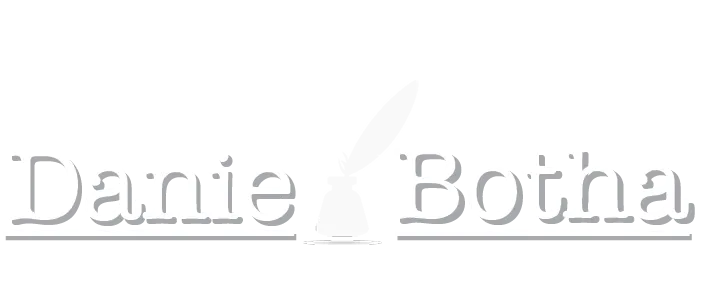You can write yourself healthier: an introduction
Writing has the power to heal us.
Writing has the ability to save lives; as does purposeful reading and reflection. Oh, but I don’t need healing, you say. My life’s perfectly fine. I’ve worked hard, established myself, I’m contented; I have everything I need.
And then, in an instant, life changes. The unexpected happens, and life as we know it will never be the same.
Every day people are exposed to loss, death, illness, divorce, injury, and trauma, to abuse or aggression. It is not uncommon anymore to be affected by public violence, such as mass shootings and powerful bomb explosions, aimed at soft civilian targets.
Abuse, ranging from sexual, emotional, domestic to the workplace, has become commonplace. Devastating illness can arrive unannounced. Loss of a loved one doesn’t ask permission. Natural disasters strike at inopportune times. Political unrest and civil wars lead to mass emigrations, bringing with it trauma, devastation, and displacement. In an uncertain economy, financial ruin is not out of the ordinary.
How do we survive all this? How do we escape the relentless claws of hopelessness and despair?
Lifesavers are:
- Our faith—There is power in prayer and the truths of scripture. Pastoral care.
- Family & friends—don’t isolate yourself. Don’t neglect friends
- Therapy—psychological and psychiatric help. Medications on a short-term basis have a place.
- Writing (Purposeful writing & reading)
- Self-care & exercise
Louise DeSalvo, author of Writing as a way of Healing, penned, in an eloquent fashion, how writing saved her life, helped her heal. She argues that through telling our stories, we can transform our lives.
How does writing help us heal from loss, grief or personal tragedy?
- It gives us spiritual and emotional advantage
- Purposeful writing changes the writer
- It helps the writer come to terms with something difficult or painful
- Helps us explore the deeper recesses of our self
- Writing as healing is not selfish—it is necessary. It enables the hurt individual to achieve wholeness again.
Examples of how writing helped authors find healing abound. To mention but a few: Henry Miller (Tropic of Cancer), Isabel Allende (Paula) and Kenzaburō Oe (A personal matter).
Henry Miller explained: “The more I wrote … the more I became a human being … I was getting the poison out of my system.”
What is purposeful writing? According to DeSalvo, writing to heal:
- It is more than mere journaling. It is more than making a list of daily events
- It is about feelings. What do you long for? What do you fear? What do you experience?
- Write what you are grateful for
- Describe what you are looking forward to—dreams and aspirations
- It builds a path from the dark place of hopelessness and despair toward hope and light. As Alice Walker phrased healing writing, “a sturdy ladder out of the pit.”
- Write about where you’ve been (revisit the past, but don’t dwell there!)
- Write about where you are (the present)
- Write about where you are going (the future.) Yes, there is a future!
- Write with the goal toward freedom and safety
- Find serenity and joy in your writing
- Use the writing not to deny what happened but to find a shift in perspective.
- Allow the writing, the words, to pour out. Sometimes only short essays materialize. Writing poetry has its own unique path. And, often the writes can become a full-length book, fictionalized or as a memoir. Don’t hold back.
Earlier this year, amidst significant workplace stress, both my parents passed within ten days of each other. Dad’s illness had been coming a long time—Mom’s was unexpected. The fact that I lived sixteen thousand kilometers away didn’t help. I found great comfort and healing through immersing myself in writing. I delved into poetry. I exercised hard. Spending time with siblings helped all of us on the path toward healing, which doesn’t come overnight. Prayer and the support of friends became invaluable.
Writing that heals, helps us change how we feel about ourselves. It changes the stories we tell ourselves. We are not worthless (e.g. abuse victim.) We have value, in spite of what happened or is happening. It also changes how we feel toward the aggressor.
Important aspects to keep in mind while participating in writing as healing:
- When writing about traumatic experiences, medical treatment and supervision are often advised.
- Always write in a position of safety, and remain safe. Precaution needs to be taken to prevent self-harm
- You need to give yourself permission to write.
- Writing lessons and classes can help.
- Healing writing and storytelling teaches us empathy
- Learn to use the writing as a substitute for self-harm and self-neglect
- Writing is creative—it is creating art. Creating art heals.
- Self-care is crucial:
- Healthy eating
- Regular exercise. Fitness is a powerful tool for emotional bolstering.
- Enough sleep (6-8 hrs/day)
- Social interaction. Don’t isolate yourself.
Writing is not expensive. You only need:
- Pen
- Paper
- Time—any five or ten minutes will do. Just start—it works.
- Location—write anywhere, anytime. Write on the bus, the tube, the plane. While waiting in a queue, in the garden, in bed, in the park or in your writing room.
Above all, use the writing to grow from victim to survivor and keep growing to become a victor—someone who has found a new voice. Someone who is no longer silent, but a witness of victory, someone with value, someone with a new purpose. Someone who is regaining wholeness.
Remember, your writing has purpose and value—not only in healing you, but, if edited and published, can be shared and help heal others. It can become a powerful tool to touch and transform your readers.
Thank you for reading! Thank you for sharing!
References:
- Louise DeSalvo. Writing as a way of Healing. How telling our stories transforms our lives. Beacon Press, Boston. 1999.
- Leila Kubesch. Advocating for the underserved. Toastmaster International magazine. October 2017.
© 2018 DanieBotha.com. All rights reserved.
Image – pexels.com


